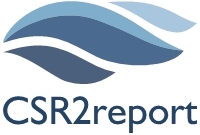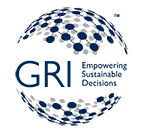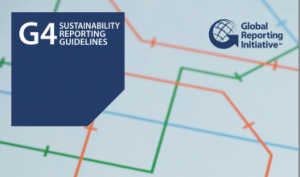‘Corporate Social Responsibility goes beyond philanthropy and compliance and addresses how companies manage their (in-) direct economic, social, and environmental impacts, as well as their relationships in all key spheres of influence: the workplace, the marketplace, the supply chain, the community, and the public policy realm.’
Focus areas of CSR reporting:
- Energy and Carbon
- Environment, Health & Safety
- Compliance
- Supply Chain
- Sustainability and Reporting
Worldwide standard setting authorities provide guidance for CSR reporting topics:
- Global Reporting Initiative (GRI): promotes the use of Sustainability Reporting and produces free Sustainability Reporting Guidelines to enable companies to report their economic, environmental, social and governance performance.
- Carbon Disclosure Project (CDP): CDP works to transform the way the world does business to prevent dangerous climate change and protect our natural resources. We see a world where capital is efficiently allocated to create long-term prosperity rather than short-term gain at the expense of our environment. We use the power of measurement and information disclosure to improve the management of environmental risk.
- UN Global Compact: The UN Global Compact works with business to transform our world, aiming to create a sustainable and inclusive global economy that delivers lasting benefits to all people, communities and markets.To make this happen, the UN Global Compact supports companies to:
- Do business responsibly by aligning their strategies and operations with Ten Principals on human rights, labour, environment and anti-corruption; and
- Take strategic actions to advance broader societal goals, such as the forthcoming UN Sustainable Development Goals, with an emphasis on collaboration and innovation.


